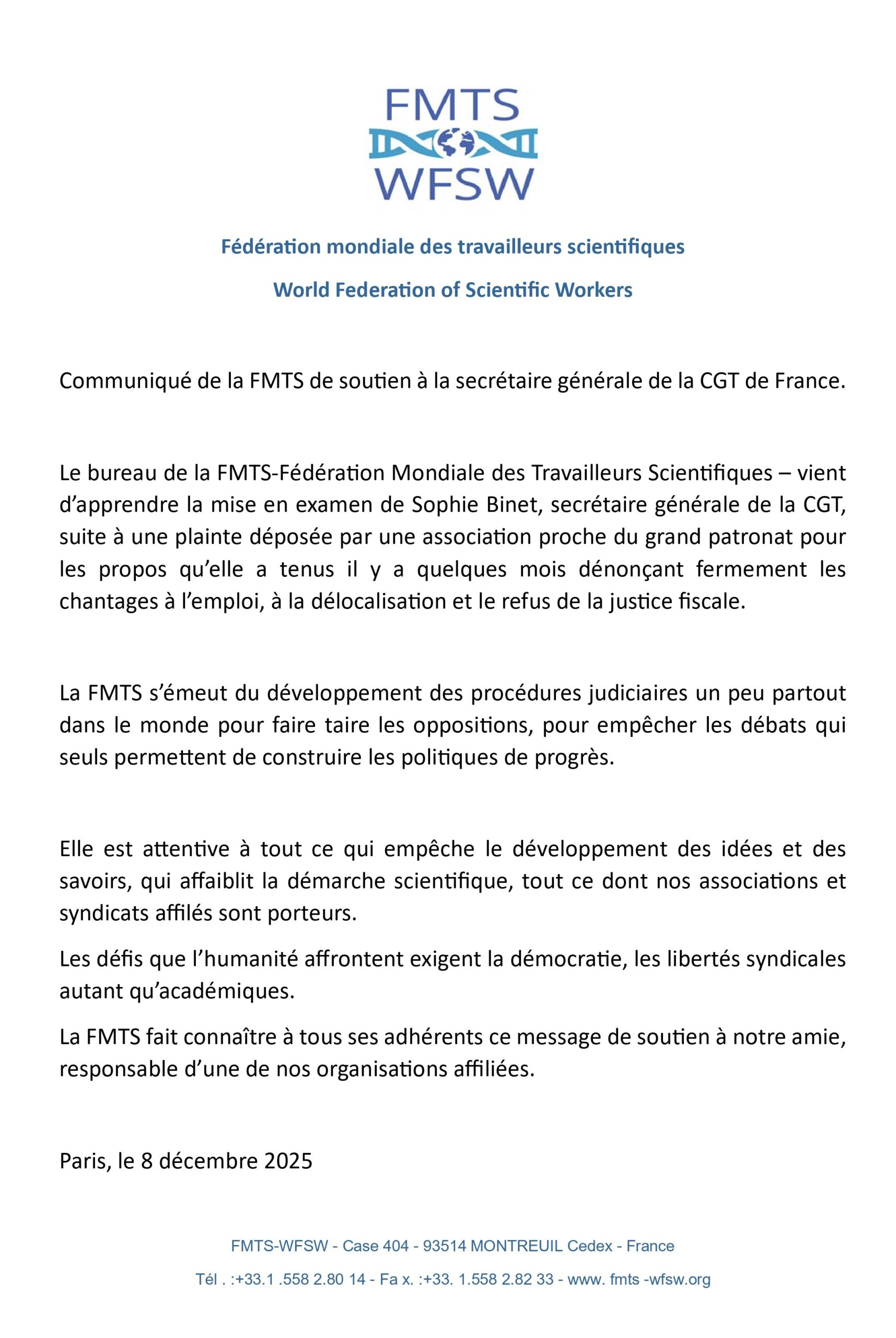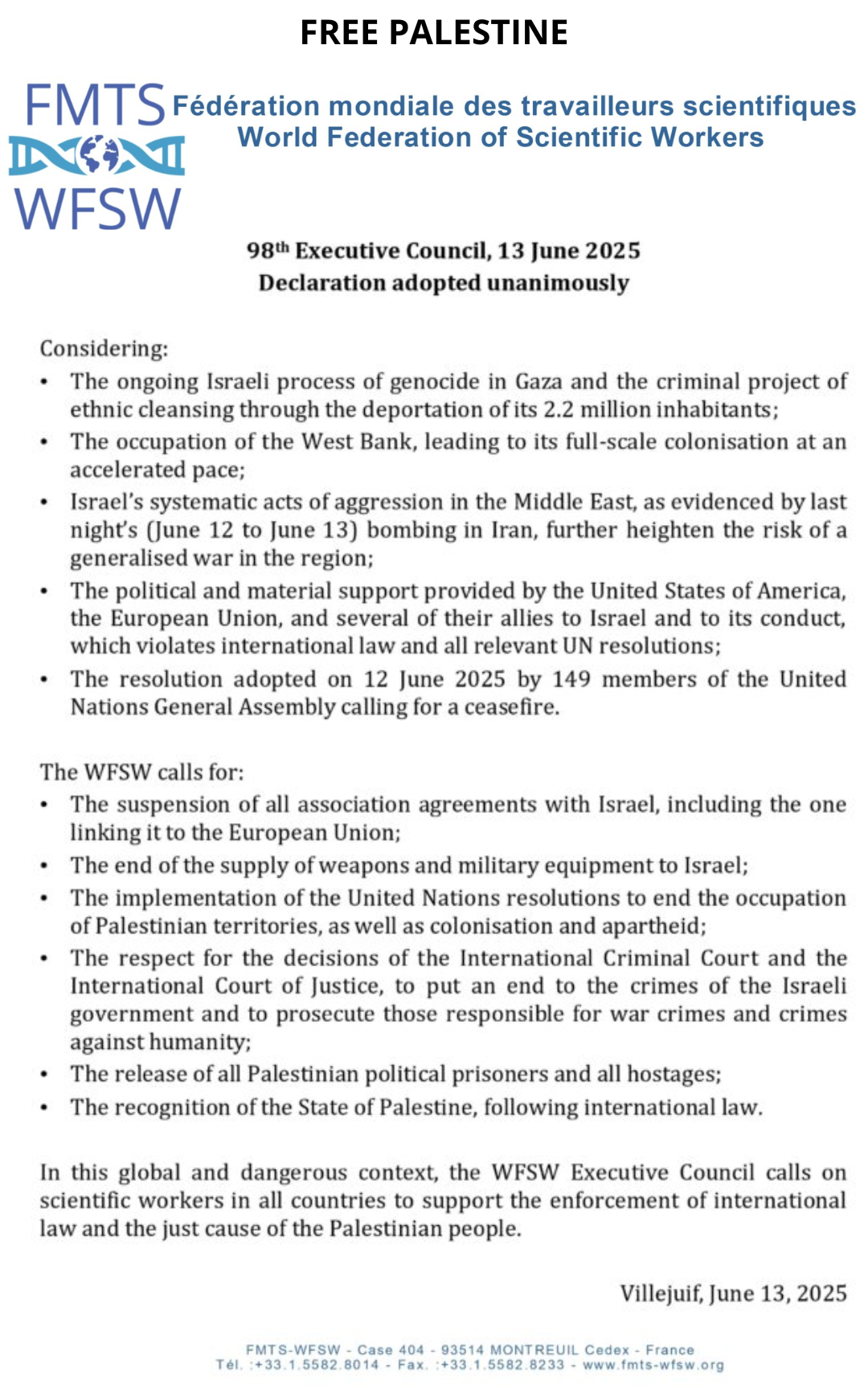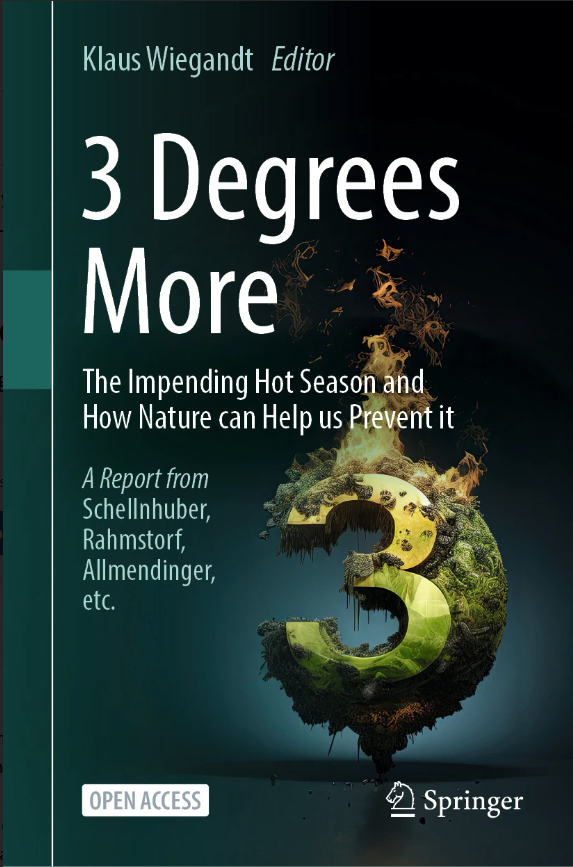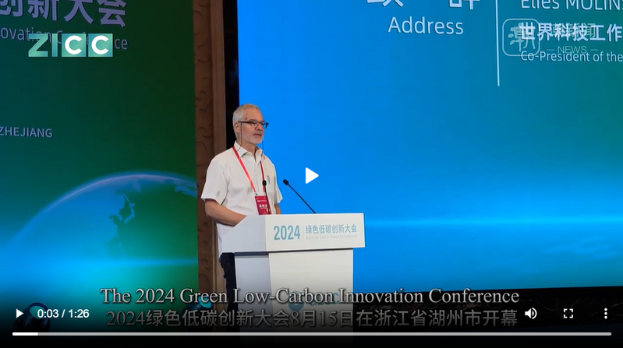About us
Identity
The World Federation of Scientific Workers (WFSW) is a non-governmental international organization, an official partner of UNESCO. It was founded in 1946 at the initiative of very high level scientific personalities and a British Trade Union, the British Association of Scientific Workers.
The existence of the WFSW constitutes above all a call to the entire scientific community to contribute to placing science and technology at the service of the well-being of mankind. This is why the WFSW is a group of either professional or trade unionist organizations and of individual scientific personalities. The WFSW became more a group of organizations of this type than one of individual scientific personalities. By acting together with its affiliated organizations to obtain a Recommendation by UNESCO in 1974 on Science and Scientific Resarchers, updated on Novembers 2017, the WFSW helped enable scientists to conduct emancipated professional activity.
Today scientific knowledge has become decisive in most human activities. Scientific workers, men and women, whether they are researchers, teachers, engineers or technicians, are increasingly challenged about their responsibility for the impact of their knowledge and research on the future of society and sustainability of its development. Faced with the feeling that science is all-powerful in both a positive and negative sense, we assert that the orientation of the development of society is not a purely scientific matter. Science alone is powerless to fight against poverty, inequalities, hunger, wars, the destruction of natural resources, threats to the environment. The most vital factor is the will of the peoples, the political will of the established powers.
Science, scientific research, the use of discoveries, innovation are all placed, like the rest of the economy, under the domination of the market, in particular the world financial market. Scientific workers aspire to be freed from this burden while at the same time wishing to respond to the needs and questions of mankind. They feel the need to act in accordance with their ethics. While respecting academic freedom and individual responsibility, the scientific community, civil society, and more broadly all citizens should participate in defining priorities. This is a democratic demand.
This is the meaning that the WFSW gives to the idea of social responsibility. It is in this framework that the WFSW engages in struggles for peace and disarmament, solidarity between peoples, social and sustainable development, and for a world economic order.
The WFSW maintains relations with all the NGOs concerned by the social role of science.
History
Two types of concerns converged to create the WFSW in 1946: prevent another Hiroshima, and make science serve human well-being.
When the WFSW was founded it was a small organization with fewer than 10 national organizations, trade unions and non-trade union associations agreed to join. They were in Great Britian, France, the Netherlands…some were just observers. The division of the world into two blocs and opposition to the arms race strongly marked the first years of the WFSW. One of the particularities, however, of the WFSW is that it resisted the wave of splits, especially in the trade union movement, caused by this division which began in 1947. Some of its international meetings fostered unofficial discussions between scientific experts in both blocs when the purpose was to specify the mechanisms for verifying compliance with agreements, in particular the ban on underground nuclear tests.
In 1969, under the combined influence of affiliated French and British organizations, the WFSW structured itself so as find support both among high level scientific personalities and organizations. The WFSW remains nonetheless heavily involved in the question of the role of science in the arms race. It is also present at major international meetings on the theme of development, in particular the United Nations Conference on Science and Technology for Development. (UNCSTED) in August 1979 in Vienna, and the Rio Earth Summit (Rio de Janeiro, 1992).
In the wake of the fall of the Berlin Wall, the affiliated organizations for which the WFSW was mainly a bridge between the blocs moved away from it. Some fifteen countries remained faithful to the WFSW in particular due to its action in UNESCO. Indeed, this was the occasion for the WFSW to redefine its field of action: science, ethics and society in connection with the working conditions of scientists. The 1992 General Assembly in Dakar endorsed this orientation and made it the theme of a major symposium at UNESCO in September 1996. Starting in 2002 contacts were gradually re-established and achieved a considerable growth at the General Assembly in 2013.
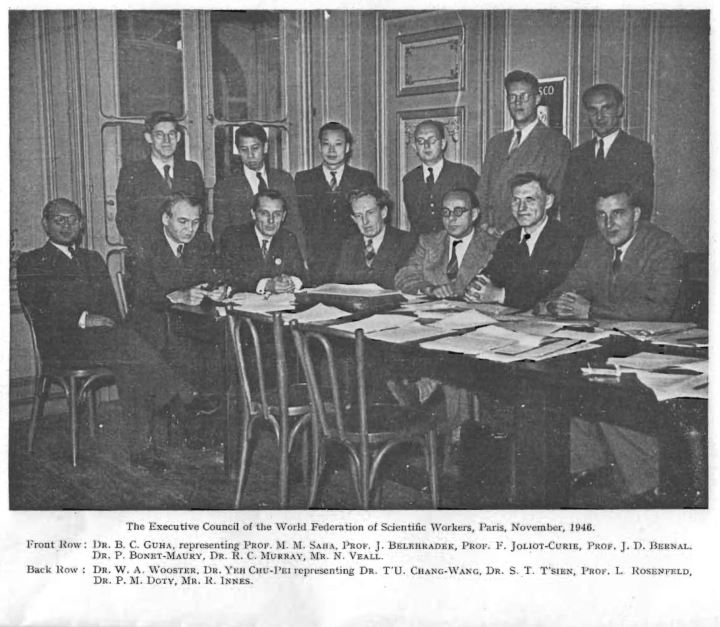
Presidents of the WFSW
- 1946: Frédéric Joliot-Curie, Nobel Prize, France
- 1958: Cecil Powell, Nobel Prize, United Kingdom
- 1969: Eric Burhop, United Kingdom
- 1980: Jean-Marie Legay, France
- 1992: Con Russel, United Kingdom
- 1996: Masayasu Hazegawa, Japan
- 1997: André Jaeglé, France
- 2009: Jean-Paul Lainé, France
- 2022: Jean-Paul Lainé, France and Elies Molins, Spain

